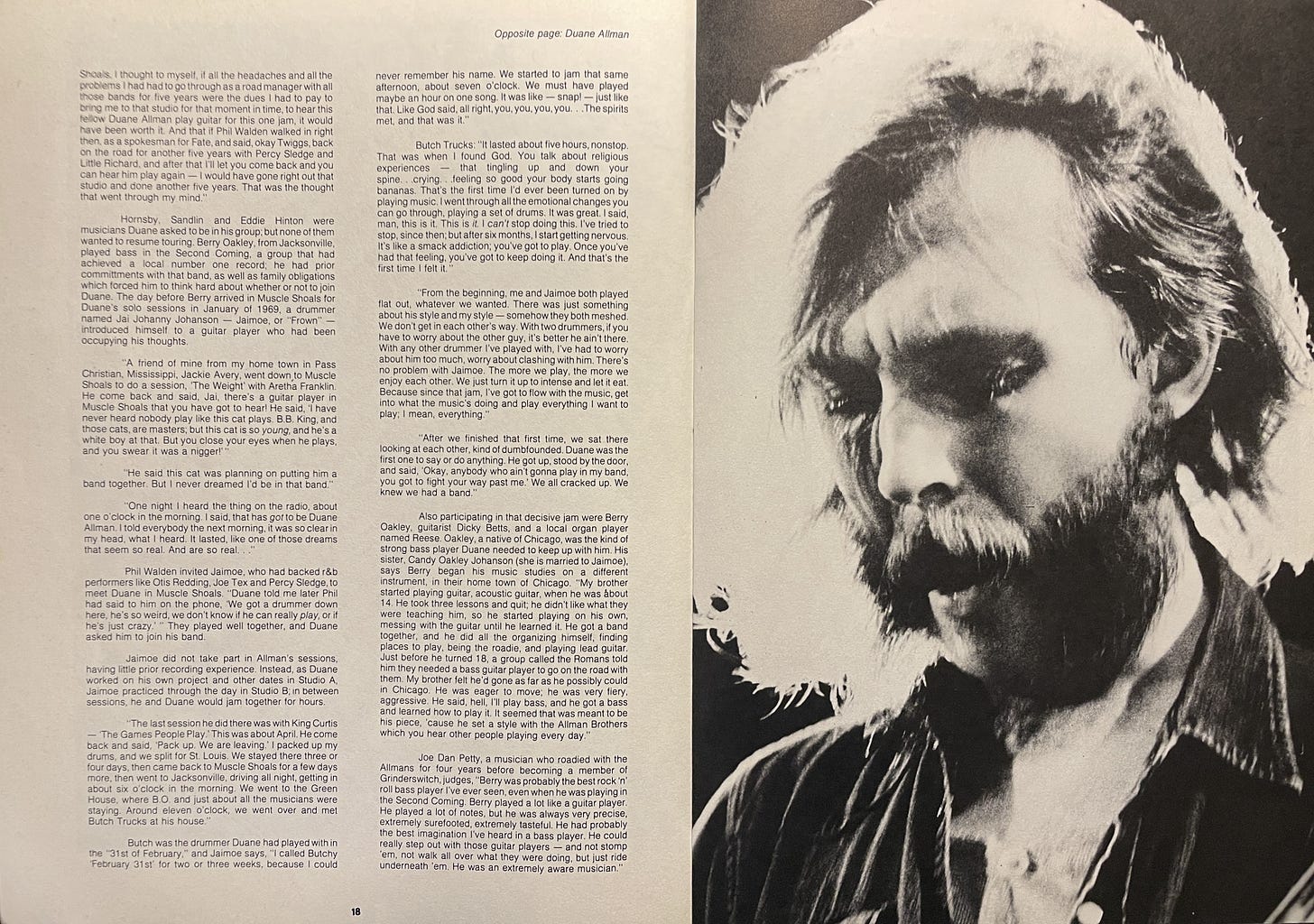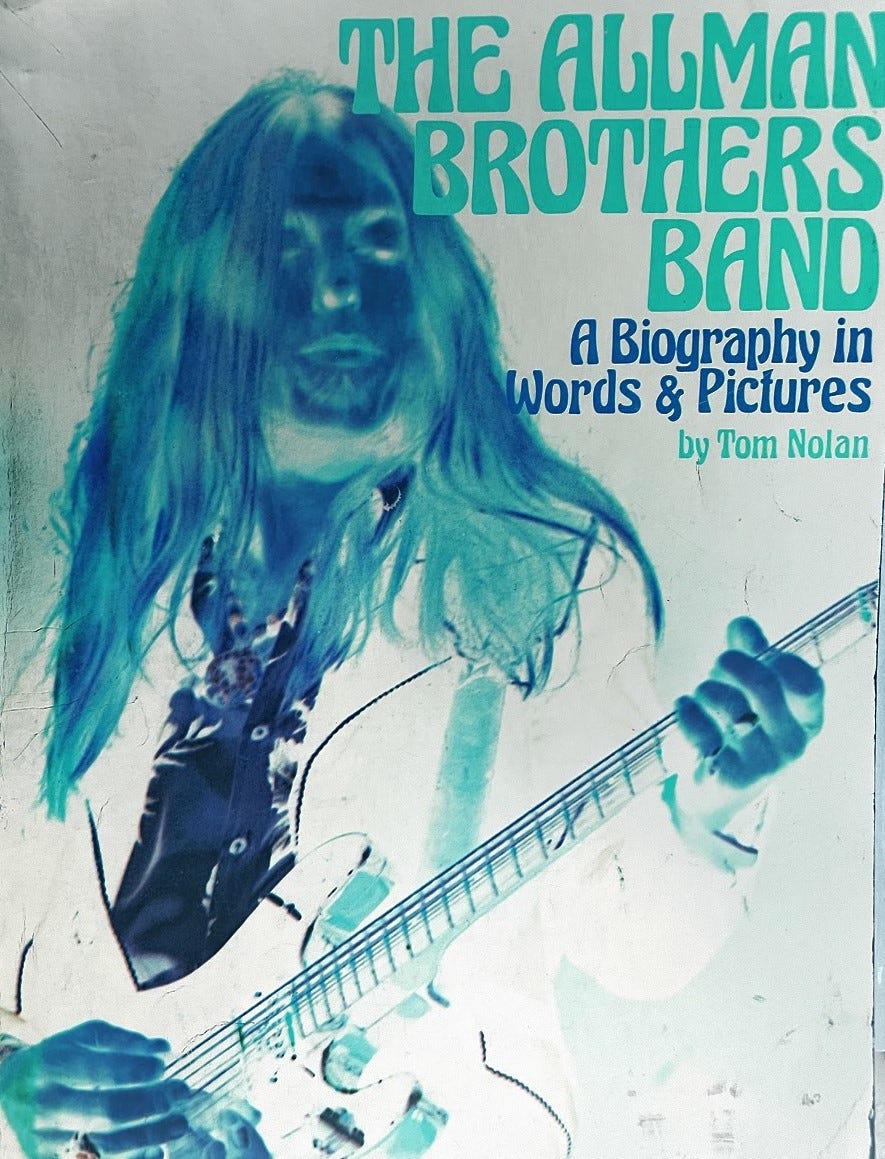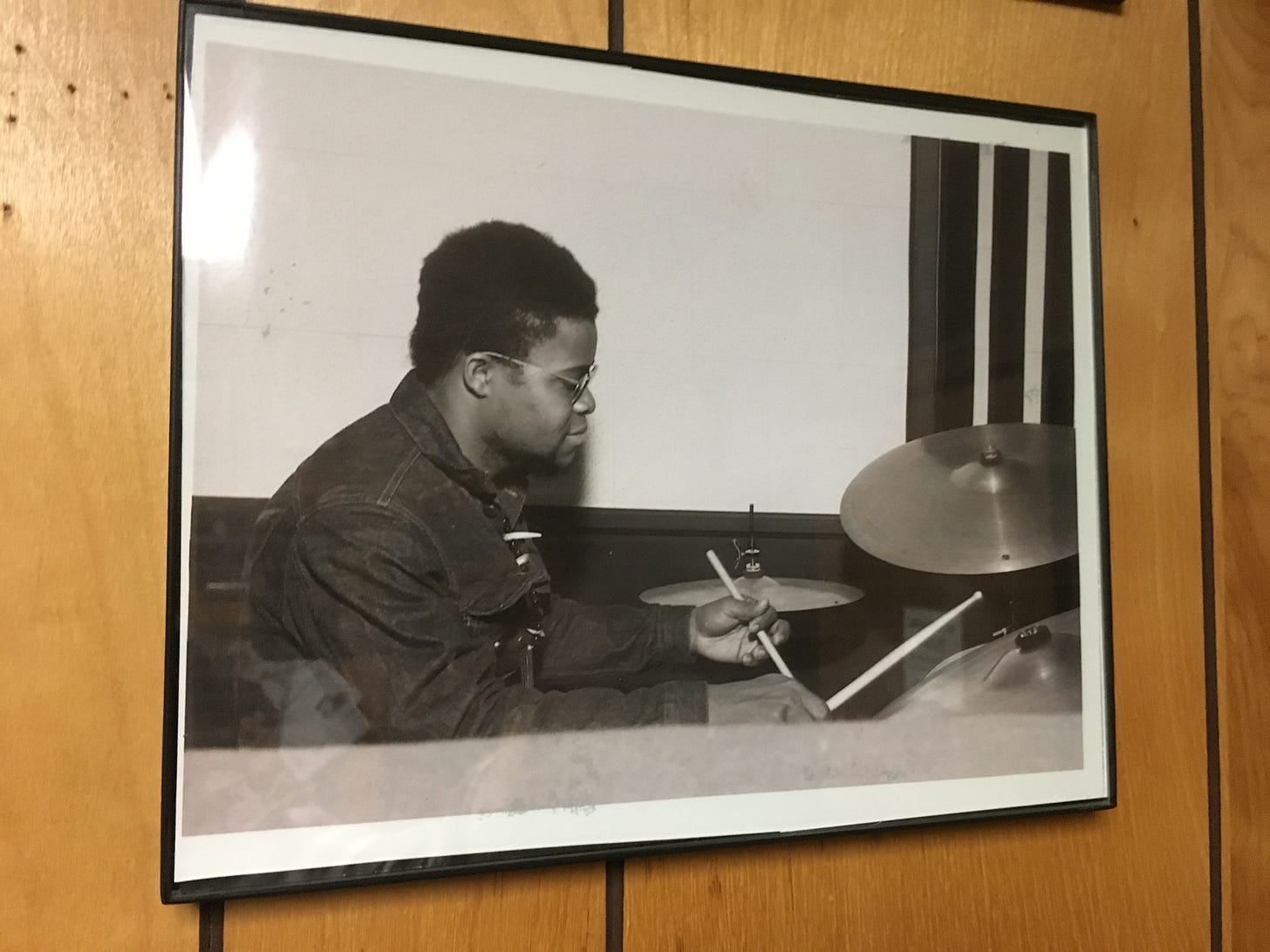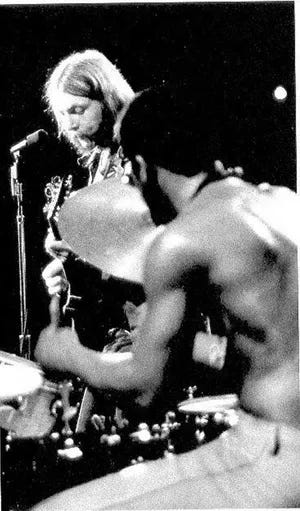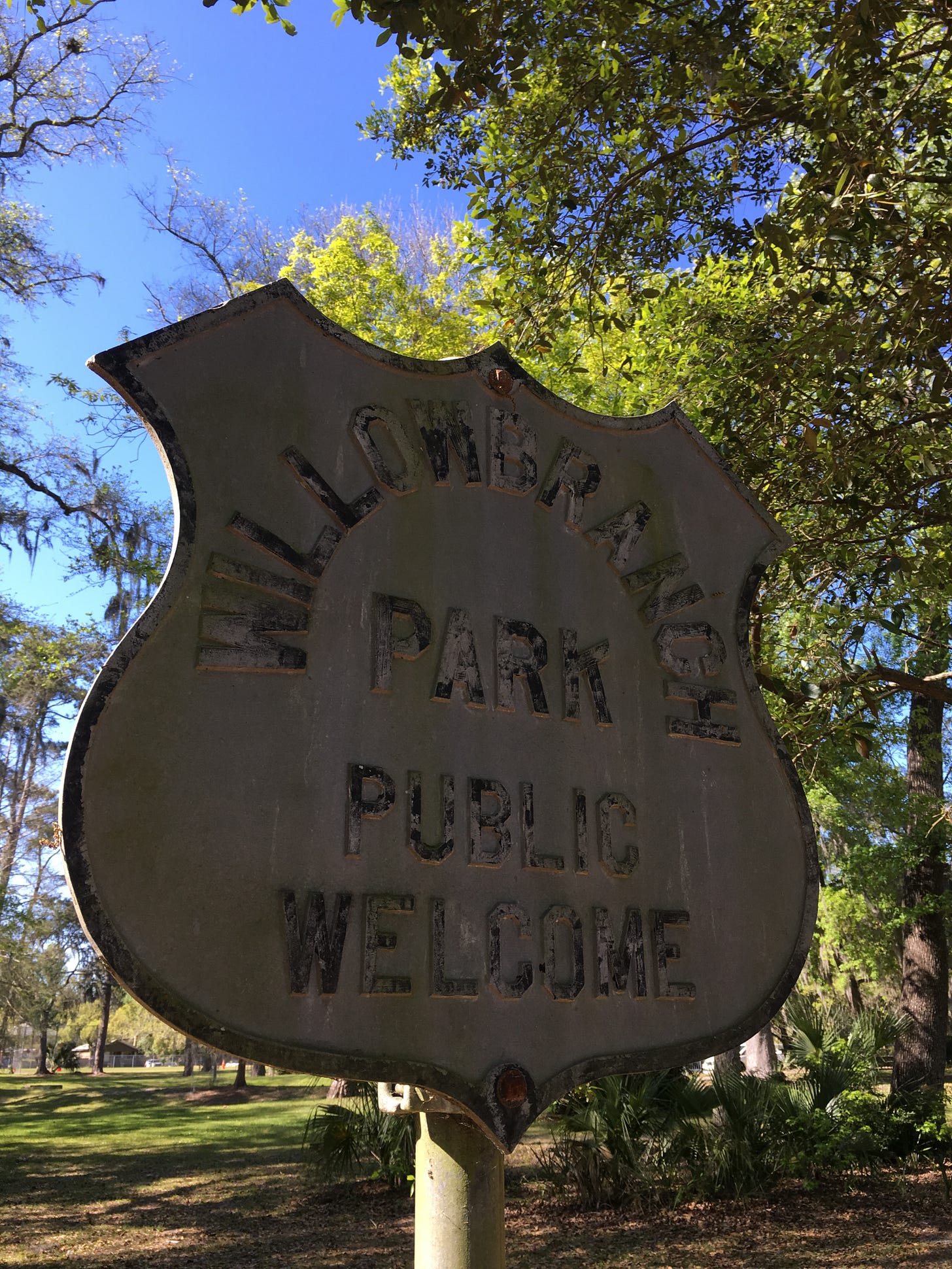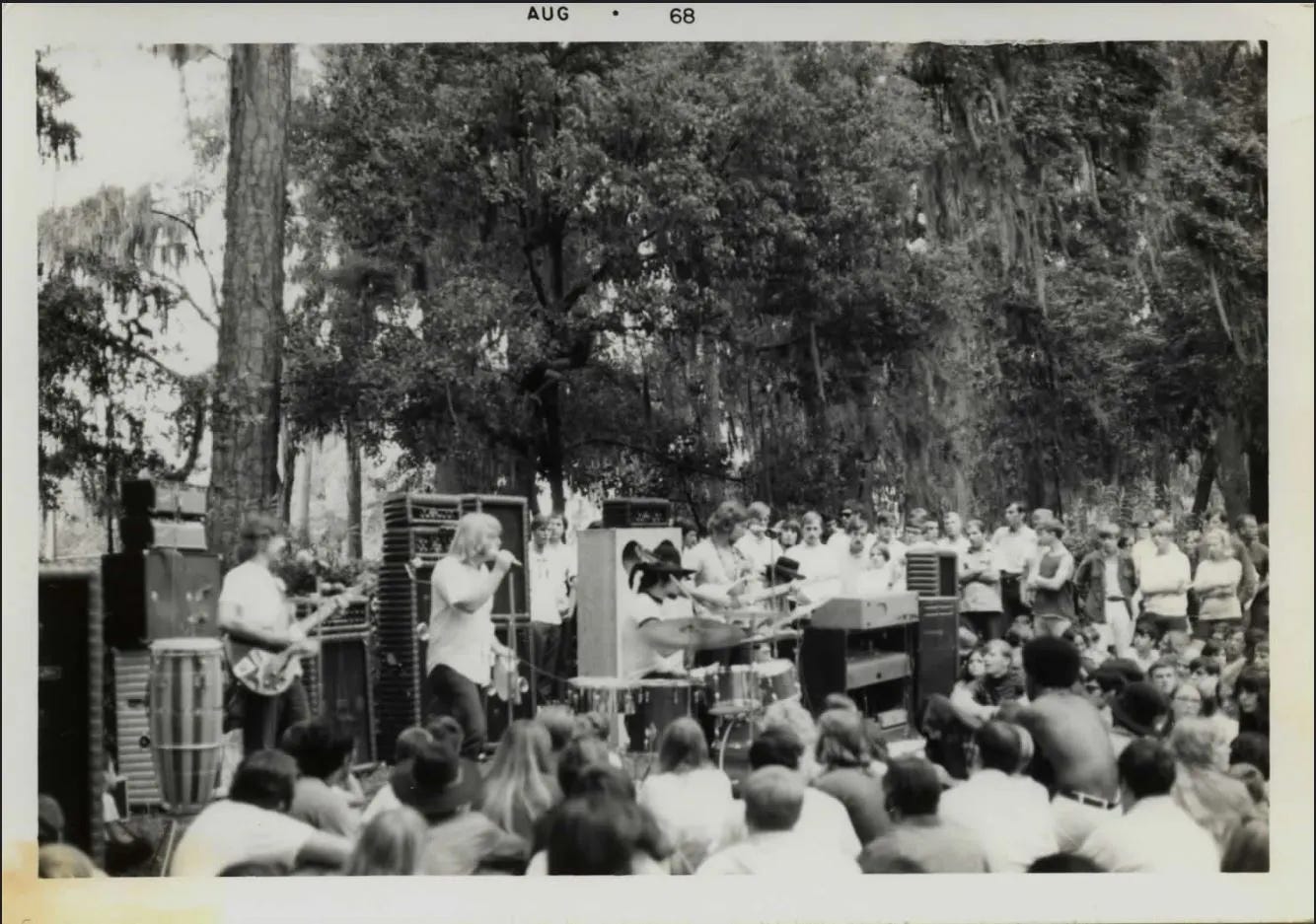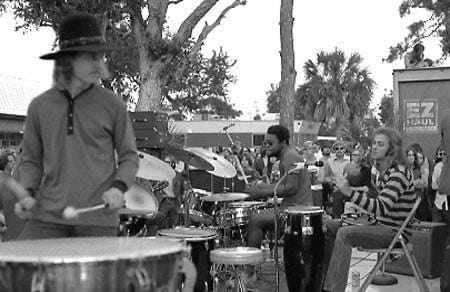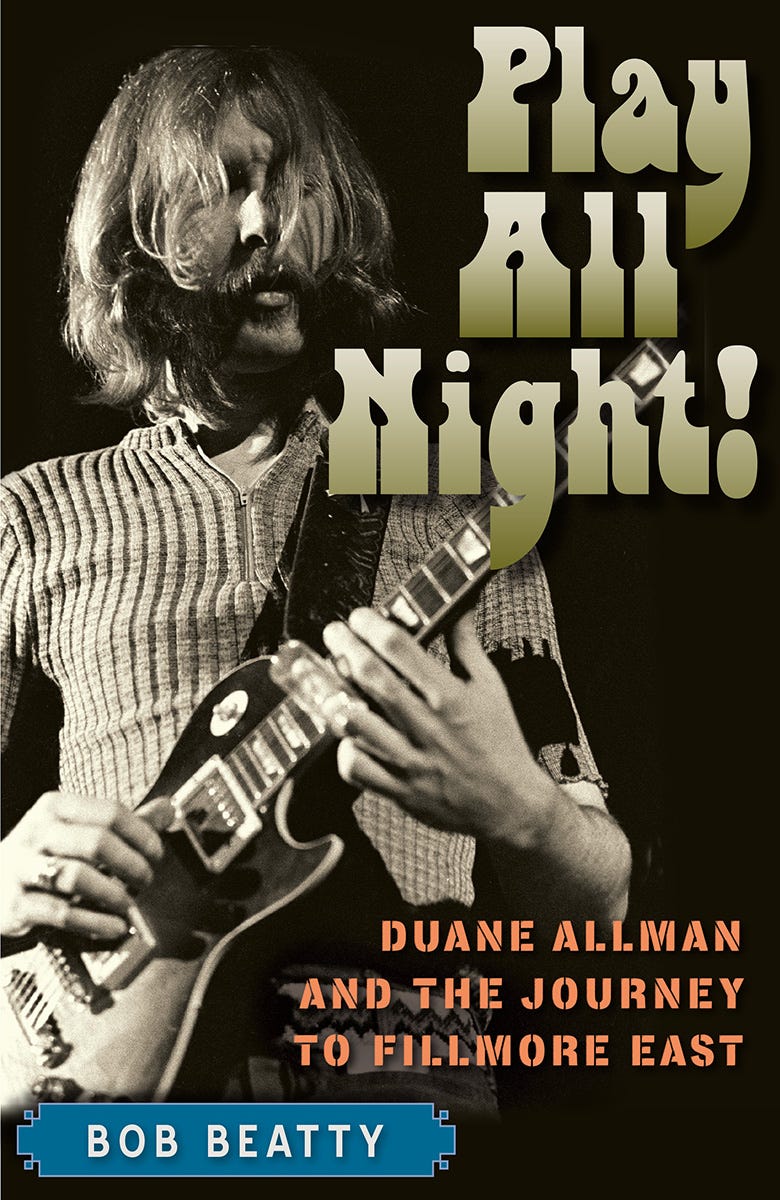“The spirits met and that was it”
The Jacksonville Jam: Part 4 of the first ABB bio
[This is an edit of a post that was previously available only to paid subscribers.]
Welcome back to Long Live the ABB. I’m in a season of curating lately and have been actively adding new content to my Youtube channel.
One of those videos is including this really awesome conversation with Sean Gaillard on his Principal Liner Notes podcast.
Something tells me y’all will dig it.
The Allman Brothers Band: A Biography
Part 4
Here’s the rest of the series
This is the page I’m commenting on today1
Full text of book posted here
Dr. B’s Marginalia
The original text looks like this.
My comments/marginalia look like this.
Previously on Long Live the ABB
The day before Berry arrived in Muscle Shoals for Duane’s solo sessions in January of 1969, a drummer named Jai Johanny Johanson - Jaimoe, or “Frown” - introduced himself to a guitar player who had been occupying his thoughts.
Nolan dates Jaimoe’s arrival to the day before Berry’s, that’s a tiny detail but significant in how quickly things were moving for Duane in early 1969.
Jaimoe and Duane seemed destined to play together. Here’s Duane’s side.
Jackie Avery played Duane a demo Jaimoe played on. “He listened to the whole thing; all he asked was, ‘Who is the drummer?’ I went back to Georgia and told Jaimoe I thought he should get over to Muscle Shoals, that I thought this guy was going to be something.”
Jaimoe picks up the story…
“A friend of mine from my home town in Pass Christian, Mississippi, Jackie Avery, went down to Muscle Shoals to do a session, ‘The Weight’ with Aretha Franklin.2
He come back and said, Jai, there’s a guitar player in Muscle Shoals that you have got to hear! He said, ‘I have never heard nobody play like this cat plays. B.B. King, and those cats, are masters; but this cat is so young, and he’s a white boy at that. But you close your eyes when he plays, and you swear it was a n-----r!’3
“He said this cat was planning on putting him a band together. But I never dreamed I’d be in that band.”
“One night I heard the thing on the radio, about one o’clock in the morning. I said, that has got to be Duane Allman. I told everybody the next morning, it was so clear in my head, what I heard. It lasted, like one of those dreams that seem so real. And are so real.”
They heard magic in each other’s playing before even meeting.4
Jaimoe—born Johnny Lee Johnson, stage name Jai Johanny Johanson, was Duane’s initial recruit.
“Was I in the original band?” he said. “Shit, I was with the band when it wasn’t no band.”
In 1964, he began his professional career with the Sounds of Soul, a group that featured future ABB bassist Lamar Williams. A year later, Jaimoe toured with R&B singer Ted Taylor.
In 1966 he joined Otis Redding’s band. He left Redding in December 1966 and signed on with Percy Sledge, where he met Twiggs Lyndon, Sledge’s tour manager.
In 1968, Jaimoe relocated to Macon at Lyndon’s invitation to play in a studio band Phil Walden was assembling.
Turns out Jaimoe was the only musician to sign on with Walden’s new rhythm section. Broke and with no discernible prospects ahead of him, Jai resolved to leave the South for New York in pursuit of jazz.
“I figured if I was going to starve to death, it might as well be doing something I love,” he said.
An invitation to join Duane changed his life.
Jaimoe’s initial motivation was mercenary.
“Plain and simple, I went down to Muscle Shoals to make money.”
It was the advice of his mentor, drummer Charles “Honeyboy” Otis. “If you want to make some money, go play with them white boys.”
Phil Walden invited Jaimoe, who had backed r&b performers like Otis Redding, Joe Tex and Percy Sledge, to meet Duane in Muscle Shoals. “Duane told me later Phil had said to him on the phone, We got a drummer down here, he’s so weird, we don’t know if he can really play, or if he’s just crazy.’“
Duane’s answer is one of my favorite lines in Play All Night!5
“You kiddin’ man? This cat’s burnin’!”
From note one, Jaimoe said, “The greatest music I ever played.”
“I knew this was it. I wasn’t going anywhere without him. Two days after meeting Duane, all of my dreams came true. We didn’t have a nickel but we were all just as happy as could be, doing exactly what we wanted to do.”
They played well together, and Duane asked him to join his band. Jaimoe did not take part in Allman’s sessions, having little prior recording experience. Instead, as Duane worked on his own project and other dates in Studio A, Jaimoe practiced through the day in Studio B; in between sessions, he and Duane would jam together for hours.
“The last session he did there was with King Curtis - ‘The Games People Play.’ This was about April. He come back and said, ‘Pack up. We are leaving. I packed up my drums, and we split for St. Louis.”
Lots of history is happening in these paragraphs. An entire aborted solo album project and dozens of sessions.6 Duane’s time in Muscle Shoals comprises an entire chapter in Play All Night. 7
Jaimoe’s well-known for his tremendous memory, but he and Duane were already in Jacksonville by early March 1969. They left Muscle Shoals in late-February and went to St. Louis to see Donna Roosman, Duane’s girlfriend at the time, pregnant (or soon-to-be) with his daughter Galadrielle.8
Let’s revisit this single sentence.
Jaimoe practiced through the day in Studio B; in between sessions, he and Duane would jam together for hours.
Those jams were otherworldly.
“We scared the hell out of people,” Jaimoe said. “Nobody would touch a goddamned instrument.”9
“They’d just come in, sit around the wall and look at us.”
“You’d try to get them to jam and they’d say, ‘No, not with you.’”
Jaimoe’s talking about ace session cats—the band that backed Wilson Pickett and Aretha Franklin, among many others.
What Duane and Jaimoe were creating baffled and intimidated them.
It’s astounding to me that they weren’t running tape.
“We stayed there three or four days, then came back to Muscle Shoals for a few days more, then went to Jacksonville, driving all night, getting in about six o’clock in the morning. We went to the Green House, where B.O. and just about all the musicians were staying. Around eleven o’clock, we went over and met Butch Trucks at his house.”
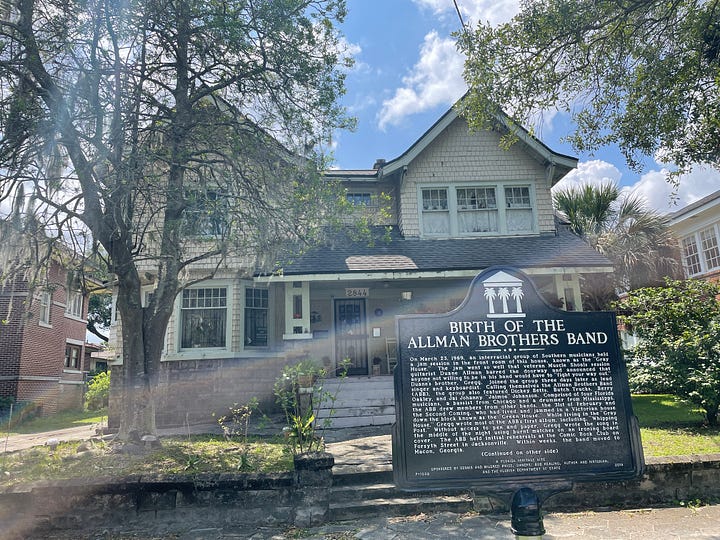
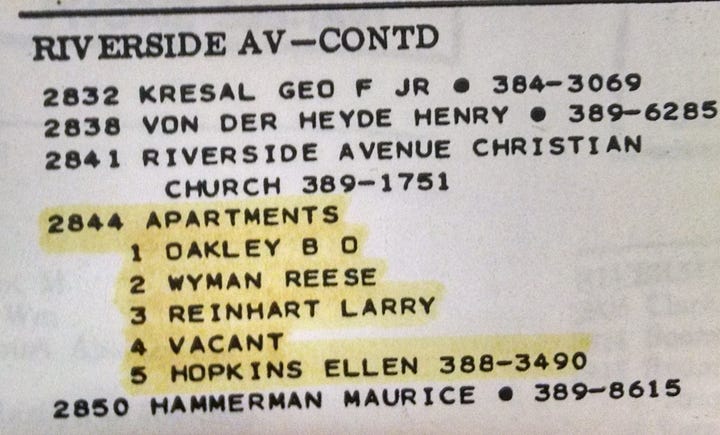
The house they went to was the Gray (not Green) House10 was the communal home of the Second Coming. Under Berry Oakley’s leadership, it was also de-facto headquarters for the Jacksonville music scene.
“Berry was real socially and politically minded, knew how to make things happen,” Dickey recalled. “We were the first people in town to have long hair. Berry wanted to bring all of the people together and show the people in Jacksonville that there were a lot of us that thought a certain way.”
The band hosted regular jam sessions, including at nearby Willowbranch Park, a few blocks from the Gray House.
Butch Trucks was a regular participant.
Butch was the drummer Duane had played with in the 31st of February.
Jaimoe says, “I called Butchie February 31st11 for two or three weeks, because I could never remember his name. We started to jam that same afternoon, about seven o’clock. We must have played maybe an hour on one song. It was like - snap! - just like that. Like God said, all right, you, you, you, you... The spirits met, and that was it.”
Butch Trucks: “It lasted about five hours, nonstop. That was when I found God. You talk about religious experiences that tingling up and down your spine. crying. feeling so good your body starts going bananas. That’s the first time I’d ever been turned on by playing music. I went through all the emotional changes you can go through, playing a set of drums. It was great. I said, man, this is it. This is it. I can’t stop doing this. I’ve tried to stop, since then; but after six months, I start getting nervous.”
Notice that both Jaimoe and Butch talk about the music in spiritual terms.
That day in Jacksonville, Butch, the outspoken atheist, founded a religion.
Such was the power of the music they made together.
“It’s like a smack addiction; you’ve got to play. Once you’ve had that feeling, you’ve got to keep doing it. And that’s the first time I felt it.“
The heroin analogy is pretty stark but it does speak to the power of music in their lives. And I’m pretty sure Butch was the only band member who never got seriously addicted to heroin, though he surely saw its impact on all of his bandmates.
Nolan transitions to the two-drummer lineup
Butch’s answer to “how does it work?” has been remarkably consistent from the very beginning. It worked because it worked. And it did from day one until the very end.
“From the beginning, me and Jaimoe both played flat out, whatever we wanted. There was just something about his style and my style - somehow they both meshed.
We don’t get in each other’s way. With two drummers, if you have to worry about the other guy, it’s better he ain’t there.
With any other drummer I’ve played with, l’ve had to worry about him too much, worry about clashing with him. There’s no problem with Jaimoe. The more we play, the more we enjoy each other. We just turn it up to intense and let it eat.
Because since that jam, l’ve got to flow with the music, get into what the music’s doing and play everything I want to play; I mean, everything.”
Just like Duane and Jaimoe, Jaimoe and Butch were destined to play together.
Two drummers was Duane’s idea from the get-go. Jaimoe was a great player, but, he admits, “I was not a power drummer. [Besides], that’s not what Duane was thinking.”
Duane wanted a larger ensemble where the entire band comped behind the soloist, improvising along with him. The arrangement required two drummers.
“The sound was bigger,” said Dickey.
“Jaimoe wasn’t really able to handle the power. It just wasn’t his style.”
“Butch was well known as a strong-in-the-pocket player. Jaimoe was more of an embellisher,” said Richard Price.
The Jacksonville Jam
I never tire of the various retellings of the story of the Jacksonville Jam.
Butch continued:
“After we finished that first time, we sat there looking at each other, kind of dumbfounded. Duane was the first one to say or do anything. He got up, stood by the door, and said, ‘Okay, anybody who ain’t gonna play in my band, you got to fight your way past me.’ We all cracked up. We knew we had a band.”
Here’s Butch in 1979:
We started playing a shuffle. Went from that to something else, to something else, to another change.
Three hours later, we quit.
And I’d gone through all the changes, the chill bumps up my back, and crying and laughing and…it’s the first time I’d ever experienced that playing.
When we got finished I was dazed! I looked at Jaimoe and said ‘Man, did you get off on that?’ and he got a grin from ear to ear and said ‘Are you kidding?!’9
It was like being born again, a revival meeting. We got saved that day.12
Up Next
Berry Oakley and Dickey Betts enter the picture. Gregg arrives.
Thanks for reading, y’all.
I’m grateful to have you here.
I’m pretty sure this session happened at Atlantic Studios in NYC. Here’s the cut: Aretha Franklin “The Weight” (You’re welcome).
A dated turn-of-phrase that was the highest of compliments among Black musicians.
As my dear pal Steverino says, “There’s always been magic around this band—no small amount either.”
Here’s the list from the excellent duaneallman.info.
Here’s “Dimples” from those solo sessions. This track hasn’t circulated widely.
This quote’s from Play All Night, page 87. (Click that link, wouldya?)
Every Long Live the ABB reader should own a copy of Galadrielle’s book, Please Be With Me. It is my ABBsolute favorite Allman Brothers book.
The Green House is also on Riverside Avenue. The Second Coming moved from the Green to the Gray House and members of Lynyrd Skynyrd later lived in the Green House.
Outstanding nickname.
There’s that religious talk again 🍄


